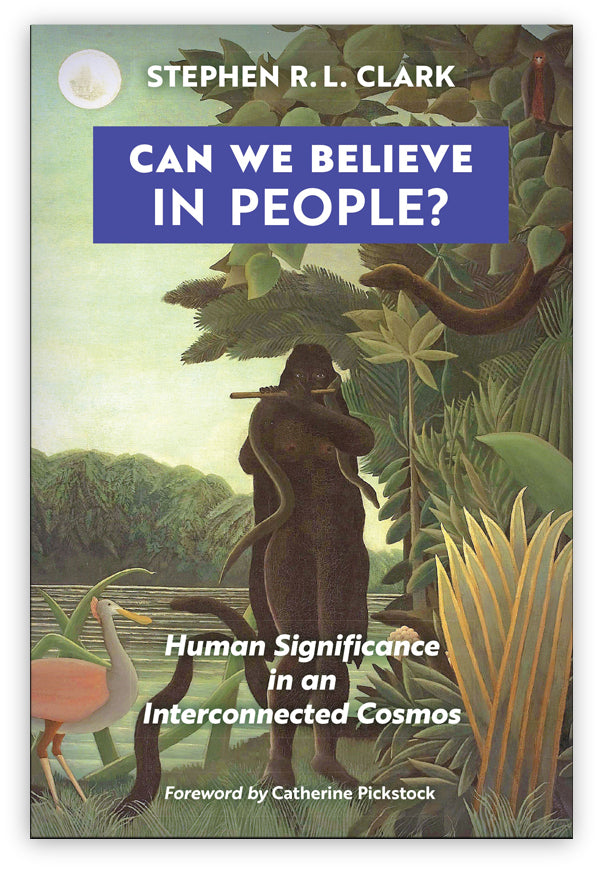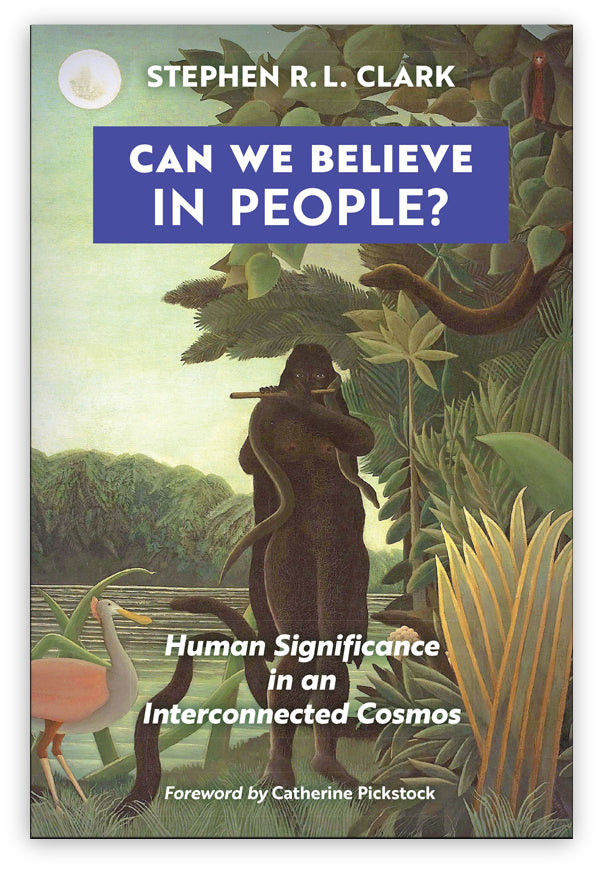“In this culmination of a lifetime’s philosophical investigations, Stephen Clark insists that far from dangling above a limitless existentialist abyss, we are invited to join the dance of a participatory creation. He delineates a world that may lie at the very edges of our imaginations, one that depends on a holy interdependence grounded on the bedrock of immutable moral realities.”
— SIMON CONWAY MORRIS
Emeritus Professor of Evolutionary Palaeobiology, University of Cambridge
“At once classical and original, reflective and constructive, this book is philosophy of the most morally illuminating kind: a vision of the spiritual community of all living things and of the participation of all life in the dignity and glory of spirit.”
— DAVID BENTLEY HART
author of That All Shall Be Saved and The Experience of God
“Those who have come to admire and appreciate a lifetime of Stephen Clark’s literary as well as philosophical skills will not be disappointed with this marvelous and timely book, which differs from his prior works in more directly interrogating theological and religious ideas on what it means to be human.”
— CELIA DEANE-DRUMMOND
Director of the Center for Theology, Science and Human Flourishing, Professor of Theology, University of Notre Dame
“This book offers a nuanced treatment of human dignity, but without anthropocentric excess. Stephen Clark deftly denies the reality of species boundaries as well as the idea that human beings are indefinitely malleable.”
— DANIEL A. DOMBROWSKI
Professor of Philosophy, Seattle University; author of Not Even a Sparrow Falls: The Philosophy of Stephen R.L. Clark
“In this visionary, provocative work, Platonism and the three Abrahamic religions come into conversation with mathematics, evolutionary biology, and even thought experiments of science fiction. Stephen Clark invites his readers to rethink the dignity of the human being in a much closer, yet also transcendent, relationship of love with all things existing.”
— GRETCHEN REYDAMS-SCHILS
Professor in the Program of Liberal Studies, University of Notre Dame
“Stephen Clark writes with clarity and erudition on the philosophy of human nature, the nature of mind, values, our relationship to non-human animals and the divine. Recommended to all who are looking for a rich, stimulating, mature work in philosophy, understood as the love of wisdom.”
— CHARLES TALIAFERRO
Professor of Philosophy, St. Olaf College
“There is no more basic issue than that of the nature of human beings and their place in the scheme of things. This scholarly book grips our attention with incisive arguments about matters that concern us all.”
— ROGER TRIGG
Senior Research Fellow, Ian Ramsey Centre, University of Oxford
Stephen R. L. Clark is Emeritus Professor of Philosophy at the University of Liverpool, and an Honorary Research Fellow in the Department of Theology at the University of Bristol. His books include The Mysteries of Religion (1984), God’s World and the Great Awakening (1991), Biology and Christian Ethics (2000), Understanding Faith: Religious Belief and its Place in Society (2009), Ancient Mediterranean Philosophy (2013), and Plotinus: Myth, Metaphor and Philosophical Practice (2016). His chief current interests are in the philosophy of Plotinus, the understanding and treatment of non-human animals, philosophy of religion, philosophy of psychiatry, and science fiction.


